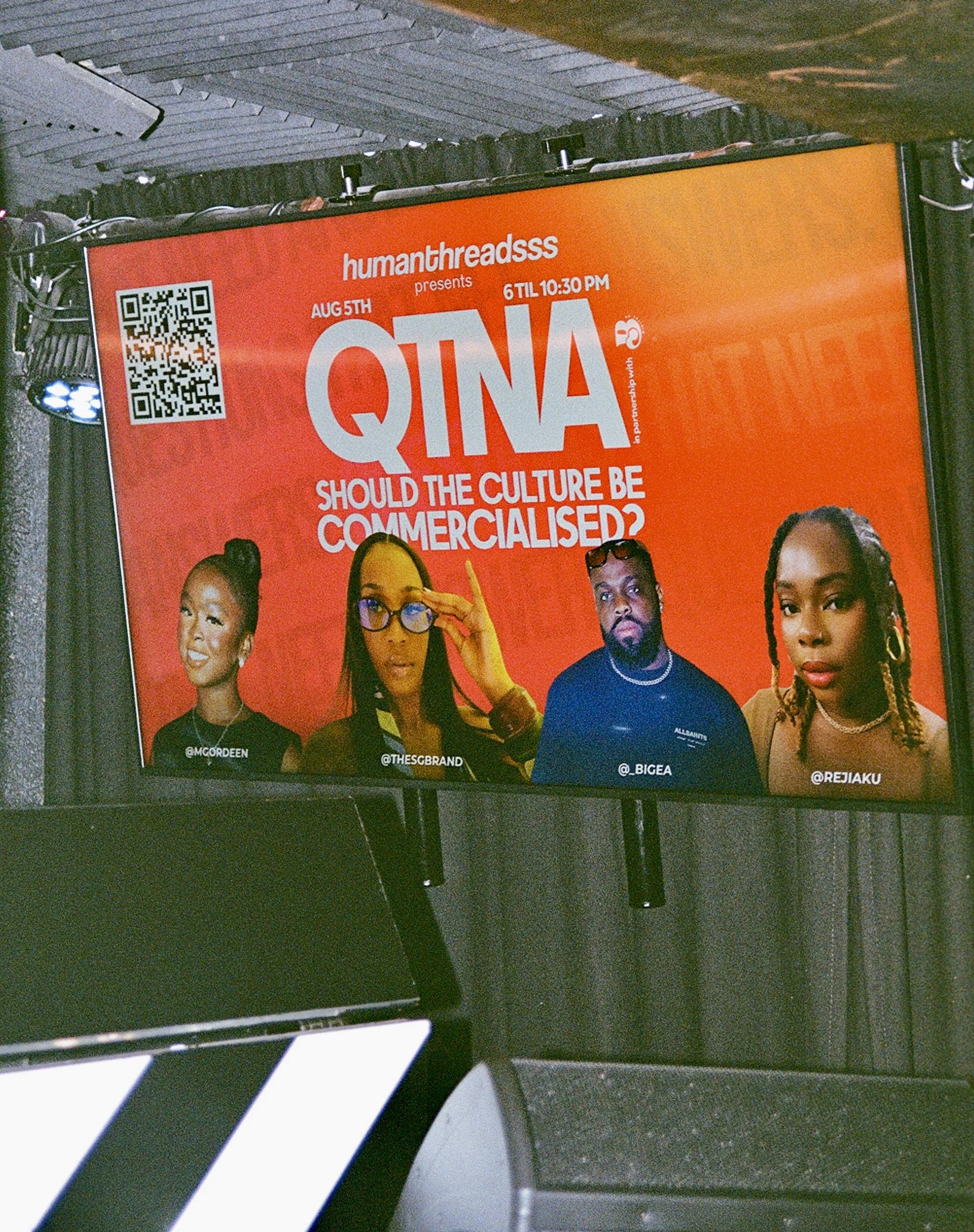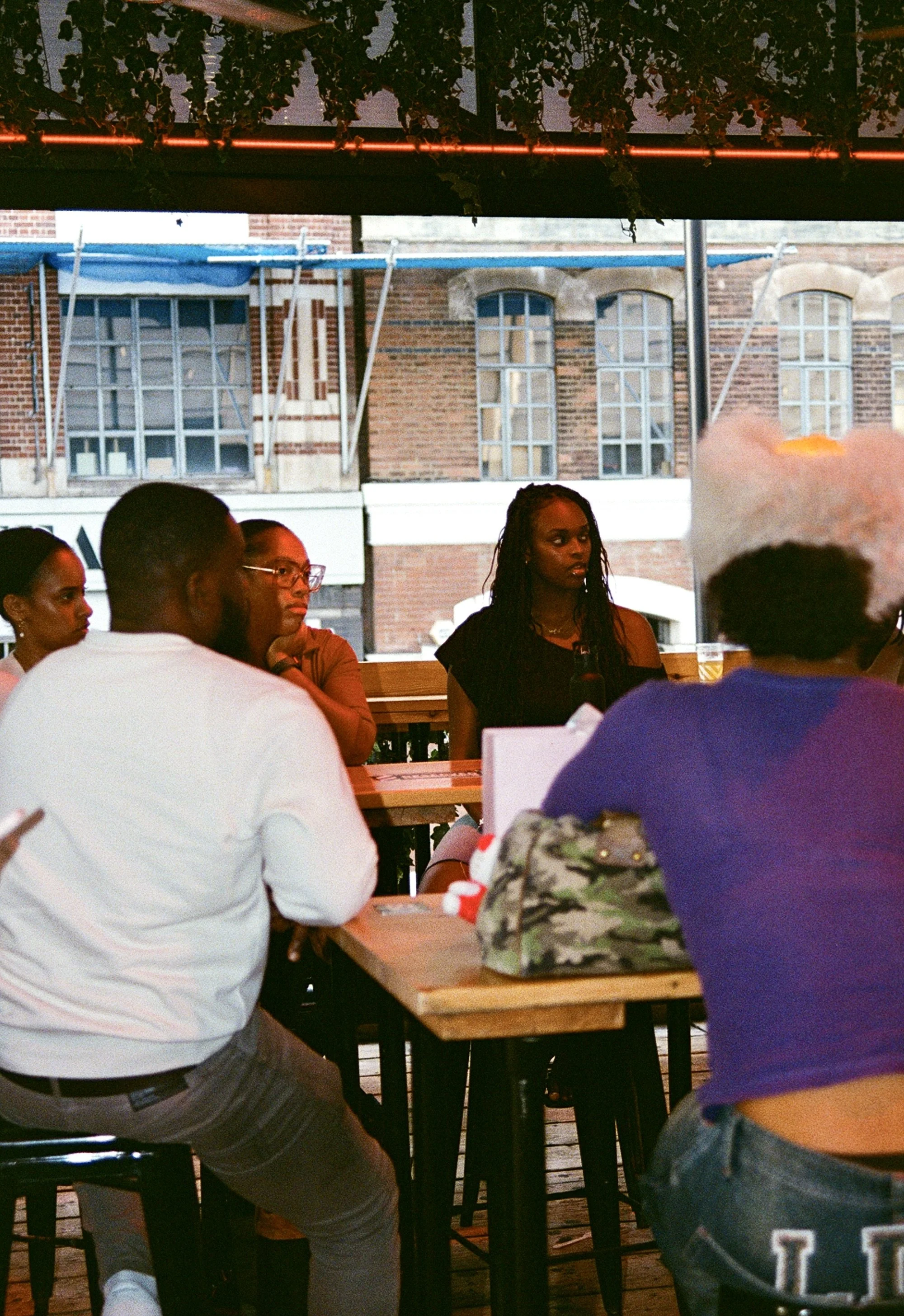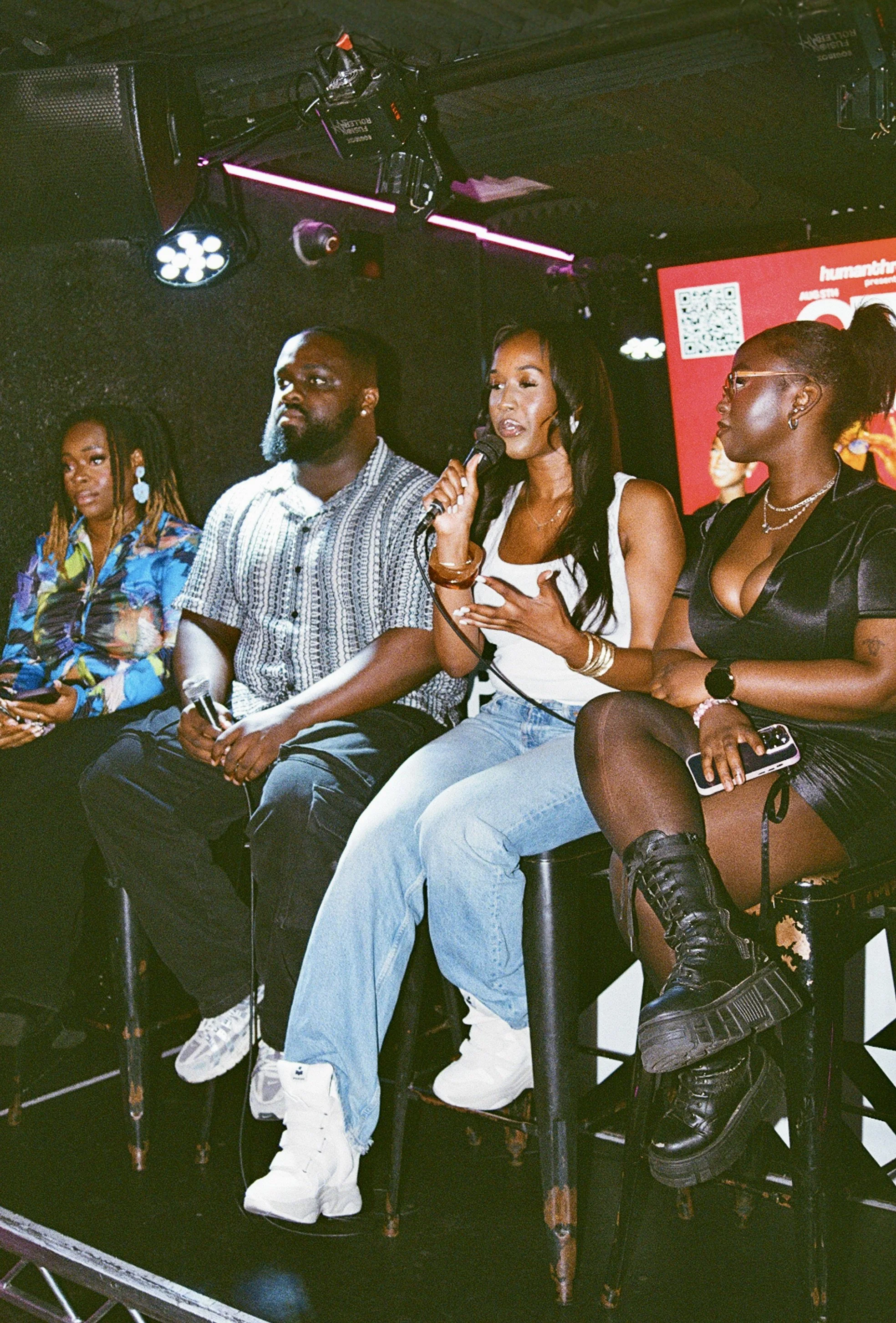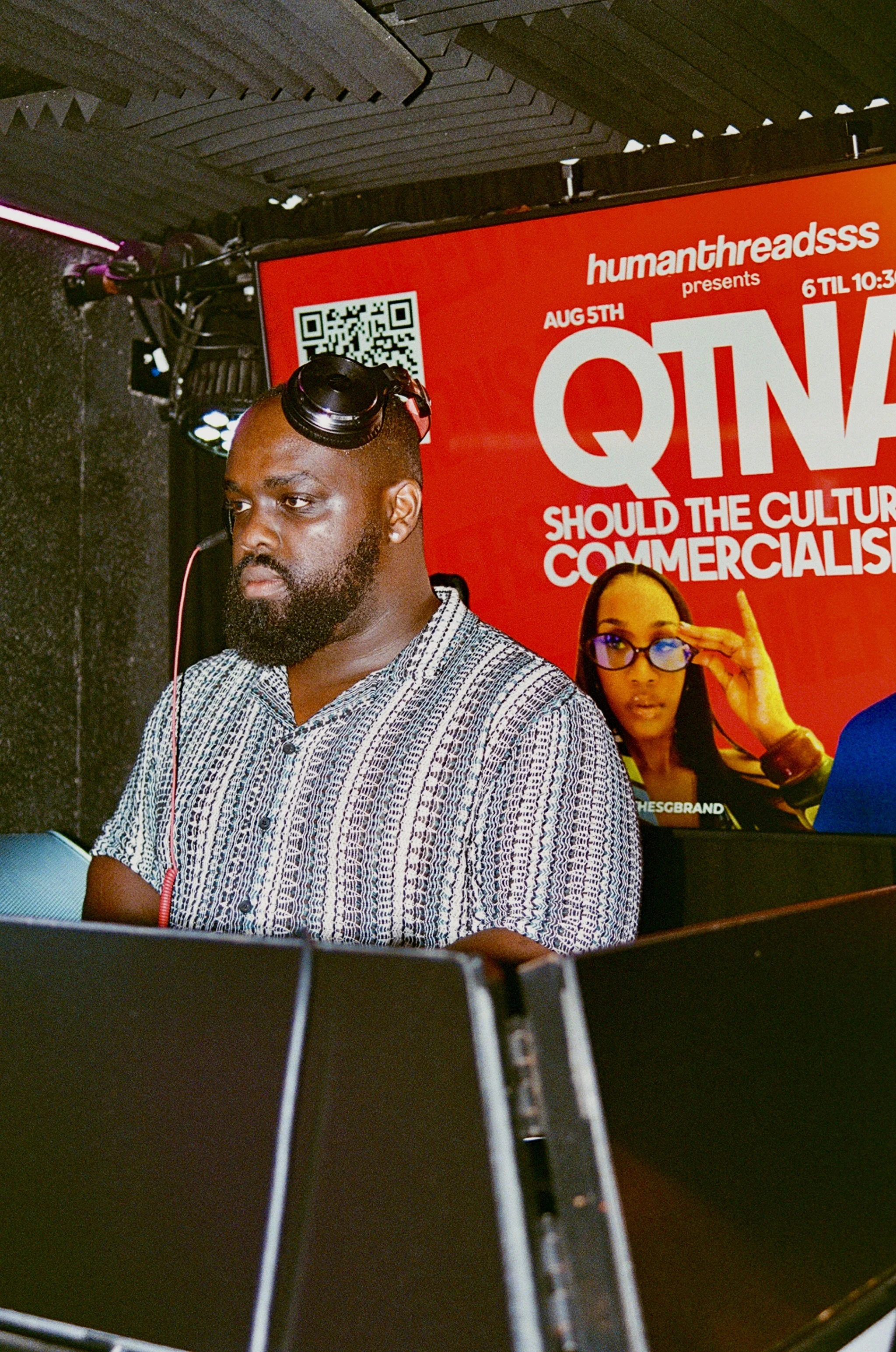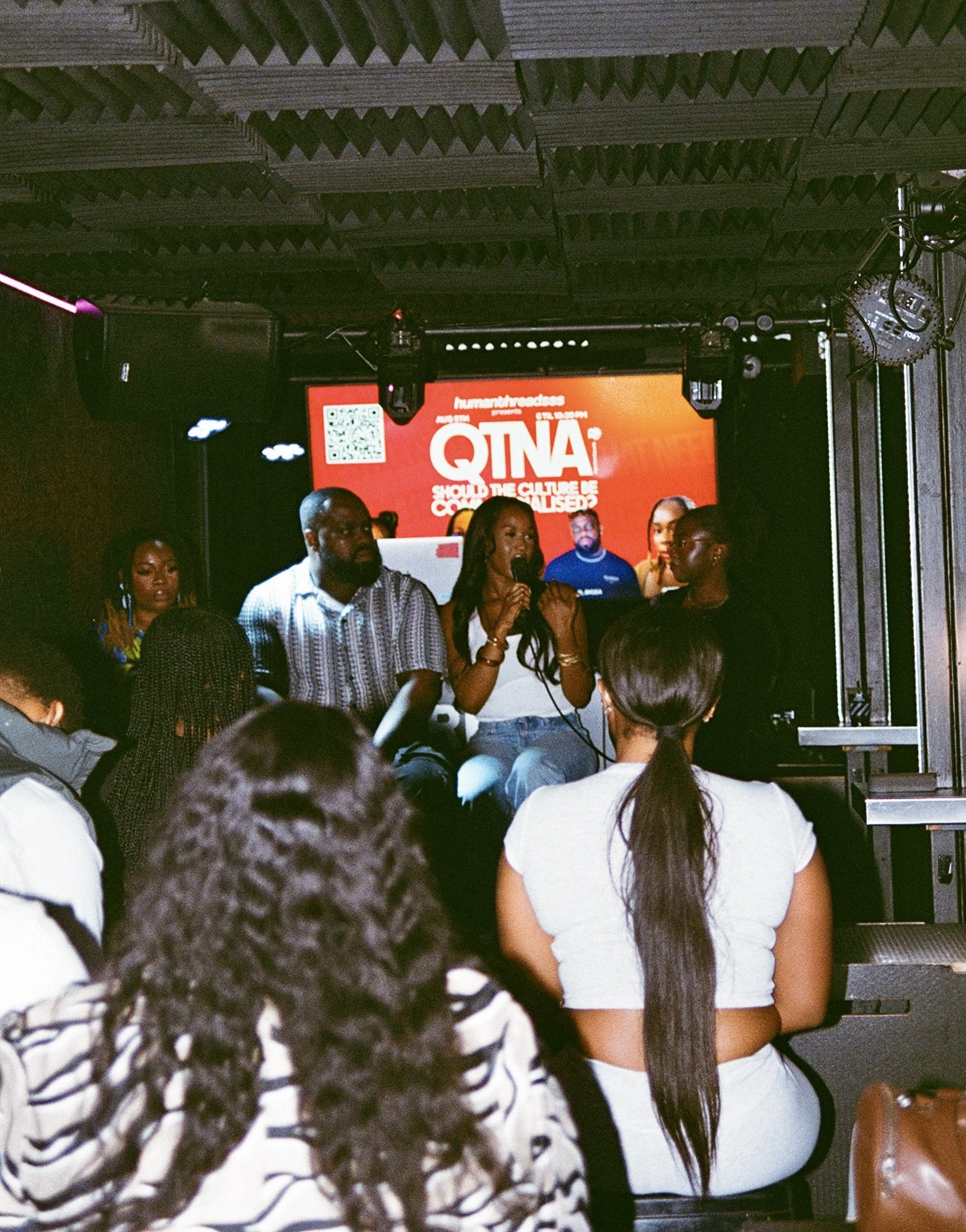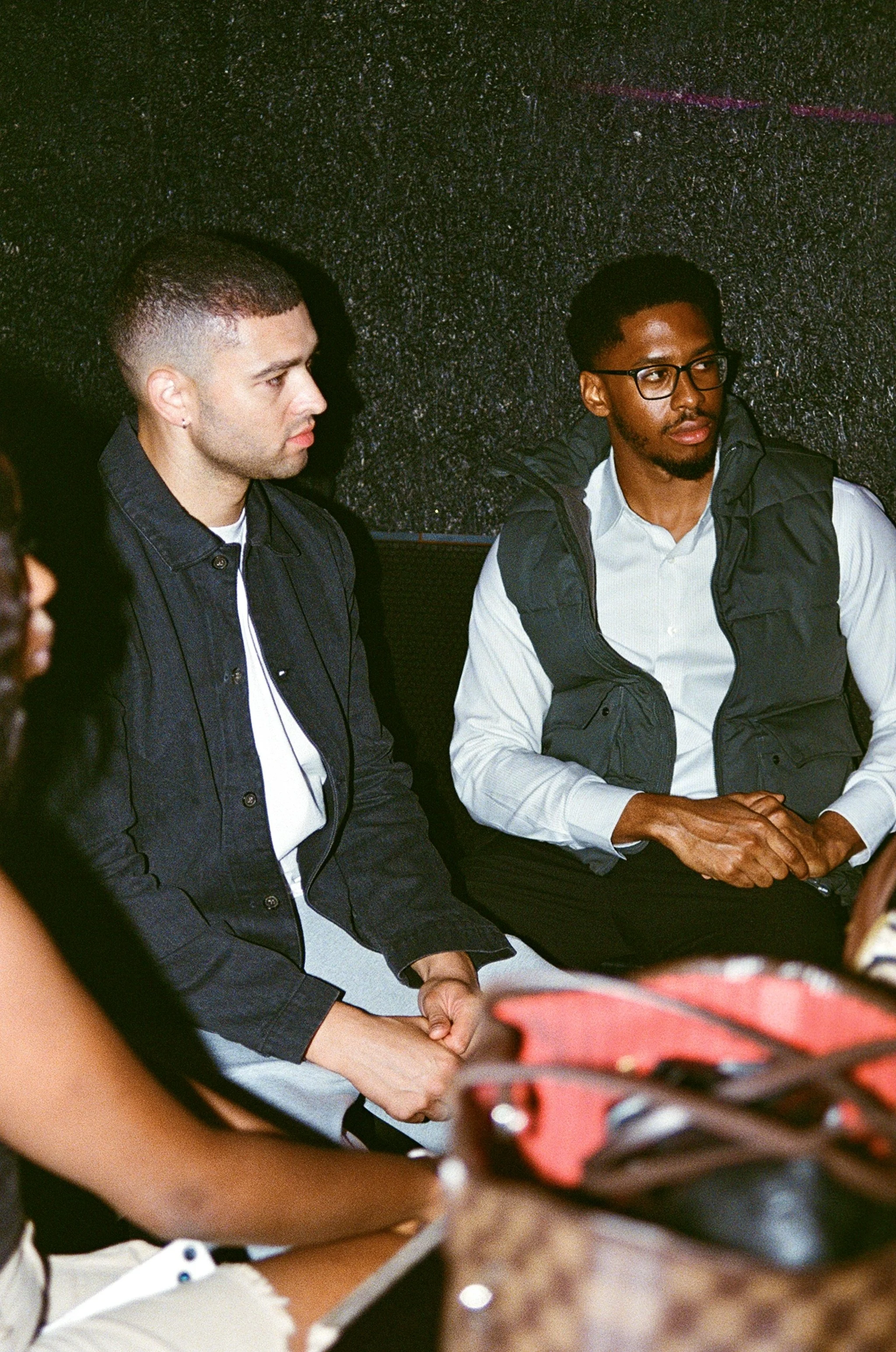Questions That Need Answers: Should the Culture Be Commercialised?
As cultural events gain more mainstream attention, the energy around them can begin to shift. What once felt like grassroots celebrations rooted in resistance, joy or tradition can slowly take on a different tone. More curated. More branded. Sometimes, less like us.
In the lead-up to Carnival, and after conversations around Fête de la Musique, HumanThreadsss partnered with B-Digital UK to launch Questions That Need Answers, a new series designed to bring honest, community-led conversations into the open.
Our first question set the stage:
Should the culture be commercialised?
Taken by @slydashoots
Debate before dialogue
To start, the audience split into two groups. One side argued for commercialisation, the other against. The room quickly came alive with passionate points. Some argued commercialisation can open doors, bring visibility and create resources that communities deserve. Others warned it could dilute culture, erase complexity and hand power to those outside of it.
The debate showed just how layered the question is. There is no single truth, only perspectives shaped by lived experience.
The panel
The evening was hosted by myself, Martina Gordeen (founder of HumanThreadsss), alongside Rejoice Ojiaku (co-founder of B-Digital UK). Our panellists were:
Edmund Antwi, Co-founder of Soft Life Ski
Together, we explored what happens when brands step into spaces that were never built for them, and what this means for ownership, representation and community legacy.
What we learned
Culture is not a monolith
The panel reminded us that “Black culture” is never just one story. It spans Black British, African, Caribbean, American and European experiences, each with their own histories and nuances. Any attempt to commercialise without that recognition risks flattening culture into something easier to market but less authentic.
Ownership and protection are missing
The discussion highlighted that communities often lack control over how culture is packaged and sold. Without structures of accountability, there is a risk of exploitation. The idea of cultural boards or committees sparked interest as a way to safeguard integrity before commercialisation is even considered.
Taken by @slydashoots
Authenticity has non-negotiables
Edmund shared how Soft Life Ski refuses to compromise its Afro-Caribbean DNA. From music to visuals to talent casting, their identity runs through everything they create. When working with brands, they set out clear non-negotiables from the start. This ensures the community’s values are not bent to fit a marketing brief, and authenticity remains intact.
Gen Z is changing the rules
For Sweeney-Gloria, the focus was on Gen Z, who connect with movements that feel real rather than manufactured. They value credibility, identity and discovery over hype. She also noted that data plays a powerful role in proving the importance of cultural strategies to boardrooms that may not yet understand them.
Culture lives beyond one-off events
Edmund spoke about how Soft Life Ski turned a ticket delay into a storytelling moment, using public curiosity to build energy rather than lose trust. It was a reminder that culture is not limited to the event itself. Storytelling, trust and long-term connection are what keep it alive long after the night ends.
Taken by @slydashoots
Influence matters more than numbers
The conversation closed with the idea that real success is not only about ticket sales or partnerships. The bigger goal is shaping narratives and influencing decisions in boardrooms, where long-term change and protection of culture can truly happen.
Looking ahead
Taken by @slydashoots
The night was not about reaching a final answer. It was about sparking a conversation that communities deserve to lead. Commercialisation is not inherently good or bad. What matters is who holds the power, how stories are told and whether ownership remains with the people who built the culture in the first place.
At HumanThreadsss, Questions That Need Answers is about creating space for these reflections. Culture is more than something to market. It is something to protect, amplify and celebrate on its own terms.
So, should the culture be commercialised? The perspectives varied, but one thing is clear: the conversation has only just begun.

